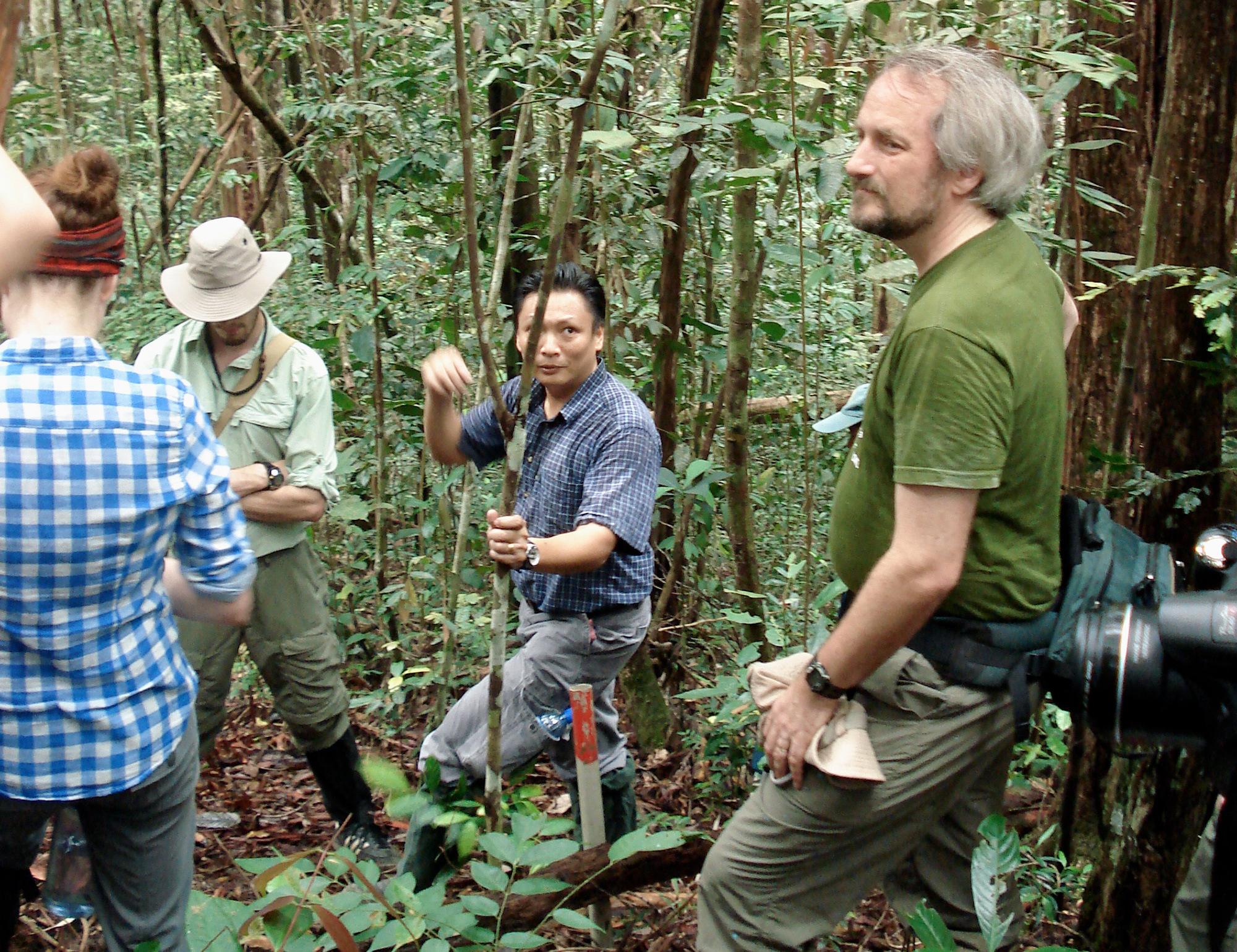
20.05.20 - Sean Thomas co-authors a study that shows tropical forests may be more resistant to temperature increases than previously known
The world's tropical forests may have a better long-term capacity for withstanding temperature increases from climate change than previously assumed, according to a new study co-authored by Sean Thomas, a professor of forestry at the Daniels Faculty.
The study, led by Martin Sullivan, a research fellow at the University of Leeds, and co-authored by dozens of other scientists based in institutions around the world, will be published in the May 22 issue of Science. It draws on data from a global network of almost 600 research plots — areas in intact forests that are carefully measured, over time, by researchers.
The plots are located in tropical forests in South America, Asia, Africa, and Australia. Thomas contributed data from the Democratic Republic of the Congo, where he helped establish four research plots in the mid-1990s.
Using data from that global plot network, including detailed measurements of the diameters of tens of thousands of trees, the study's authors were able to gain new insight into the way increases in surface temperature affect the health of tropical forests. And the news, broadly speaking, is good: as long as the earth's surface temperatures don't rise too quickly, or too much, tropical forests may be able to deploy natural defences to minimize damage from climate change.
Tropical forests are already very warm, with daily maximum temperatures around 30 degrees Celsius — but tropical climates are also very stable, meaning plant life rarely experiences temperatures much warmer than that. Previous studies, derived from sets of data drawn from relatively small geographic areas, have presented a pessimistic picture of what happens to a forest when climate change warms the air beyond that 30-degree point: trees go into survival mode and begin conserving water to prevent themselves from dehydrating. Trees that are unable to resist dehydration may die. Stressed or dying trees are less able to grow, which makes them less able to capture carbon, which exacerbates the global climate crisis.
This latest study doesn't dispute that basic sequence of events — everyone agrees that rising global temperatures are probably bad for tropical trees — but, by comparing data from forests around the world, the new study is able to draw conclusions about the long-term capacity of tropical forests to withstand climate change.
By taking this wider geographical view, the study reveals that forests in warmer areas aren't as unhealthy as some of those more local studies predict. The new study's authors believe this is because tropical forests have an innate ability to adapt to rising temperatures.
That's because every tropical forest has a huge variety of trees, and some of them are better able to tolerate heat than others. The study's authors believe that, given enough time, species of trees that can't take the heat will tend to die, allowing trees with better temperature resistance to take over.
"We think the high species diversity of tropical forests buffers them from temperature effects in the long term," professor Thomas says. "There are some species of trees that are able to compensate for other species."
Because of this adaptive capacity, forests may be able to stave off catastrophic damage from climate change — to a point. The study's authors found that tropical forests are relatively resistant to heat, but only as long as the local average daily surface temperature in the warmest month of the year is lower than 32.2 degrees. Above the 32.2-degree threshold, the negative impact of heat on tree growth is more than three times as severe.
The study concludes that a two-degree increase in global surface temperature, compared to preindustrial levels, would push 71 per cent of the world's tropical forests past the 32.2 degree threshold, resulting in the release of about 35.3 billion tons of carbon into the environment — a moderate amount, by global standards.
"That would be a good outcome," Thomas says. "When it comes to global carbon cycle figures, you have to think in very large amounts."
If the earth's surface were to warm by more than two degrees, each additional degree of temperature increase would increase the amount of carbon released into the atmosphere by billions of tons.
Although the study delivers encouraging data about the ability of tropical forests to adapt to a warming world, its authors offer a proviso: if global temperatures rise too quickly, tropical forests may not be able to activate their defences. The mitigating effects of natural adaptation wouldn't have time to kick in, and the effects on trees could be much worse than the study predicts.
For his part, Thomas cautions that this study doesn't take all possible environmental damage from temperature increases into account. "This study does not look at soil carbon stocks," he says. "We do expect that there are increased soil losses of carbon at higher temperatures. There's not a comparable global network to look at soil carbon."
Image: Professor Sean Thomas (right) in a forest plot in Borneo with Reuben Nilus (of the Forest Research Centre, Sabah). Photograph by Nigel Gale.

